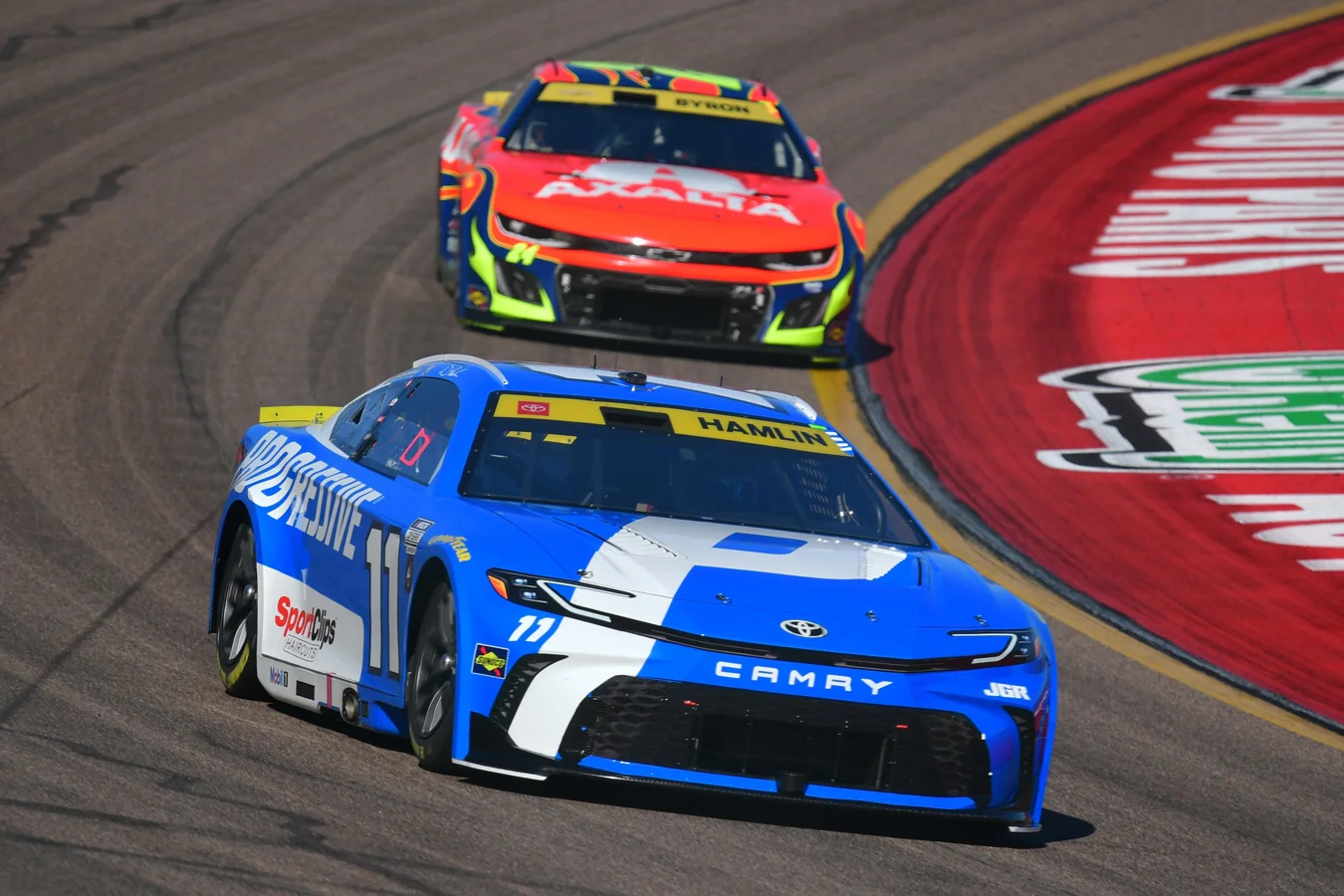William Byron has delivered a public apology after a critical crash during the Phoenix championship race, acknowledging his role in impacting Denny Hamlin’s title hopes and expressing regret over the incident. The William Byron Phoenix race apology highlights the tension and emotions that followed a late-race collision, which ultimately influenced the outcome of the event.
Championship Hopes Derailed by Late-Race Incident
During the decisive moments of the NASCAR finale at Phoenix, Denny Hamlin appeared poised to secure a long-awaited championship victory. However, a combination of strategy and misfortune shifted the momentum away from the Joe Gibbs Racing veteran. Hamlin’s pit crew opted for four fresh tires when others chose two or none, leaving him with ground to make up on the field. As the race neared its conclusion, William Byron lost control of his car, colliding with the wall in Turns 3 and 4, which brought out a caution flag and altered the dynamic of the race.
Hamlin, leading up to that point, was in a commanding position. But after the caution caused by Byron’s crash, Hamlin was unable to regain his advantage and ultimately lost the championship to Kyle Larson. The #24 driver, Byron, ended his own race in 33rd place as a result of the incident, while the repercussions were felt by Hamlin and the entire Championship-4 field.
Byron Admits Fault and Voices Regret
Following the race, William Byron openly took responsibility for the late incident, recognizing that his mistake had ripple effects well beyond his own finishing position. Byron noted that it just did not feel right to have influenced the outcome for another competitor, particularly during such a pivotal moment in the NASCAR season. He referenced Hamlin’s strong performance, saying the veteran had outperformed the rest in the Championship-4 and seemed destined for victory until the caution changed the course of the race.
It just doesn’t seem right, Yeah, I mean, I think just kind of seeing him, he had beat us, and we’re running second, four laps to go, you go into the wall and cause a caution. It sucks, right? I don’t want to be that guy, even if I’m in the Championship 4. Doesn’t really matter. Don’t want to change the outcome. So it sucks.
William Byron said, as reported by motorsport.com.
Byron’s statement communicated a deep sense of remorse, as he acknowledged the severity of inadvertently being the reason another driver lost out on a championship. He emphasized that while regret could not alter the final result, he wished he had not been the catalyst for such a significant shift in the outcome.
Mechanical Issues and the Crash’s Cause
While evaluating the events that led to his crash, William Byron reflected on feeling an unusual sensation in his car just before losing control in the final laps. Throughout the Phoenix race, Byron’s performance was steady, but he was not viewed as Hamlin’s primary challenger. As the race drew to a close, Byron tried to determine whether the issue originated from the left or right rear tire but could not prevent the car from heading straight into the wall at Turn 3 once he applied the brakes.
Yeah, I felt something a little funny on that lap, Was trying to figure out if it was a tire. I guess we were coming to three laps to go. I was trying to figure out left rear, right rear. About the time I hit the brakes into three, it laid down on the right side of the car and went straight. Yeah, I was hoping it would be a left rear so I could kind of get back.
William Byron noted.
Byron’s technical assessment underscores the unpredictability and fine margins in top-level motorsport, where a small mistake or minor mechanical issue can quickly become decisive for the season’s biggest prizes. For Byron, the combination of high-speed judgment and the car’s erratic response proved costly not just for himself but for others in contention for the championship title.
The Fallout: Emotions Run High After Phoenix
Denny Hamlin, already carrying the weight of expectations as a veteran seeking his first championship, was left devastated after coming up short. The race’s outcome and the way the opportunity slipped away in the final laps led to widespread disappointment among Hamlin’s supporters and team members. The events at Phoenix marked the end of what was considered one of the strongest seasons of Hamlin’s career, amplifying the emotional toll of the defeat.
The broader racing community reflected on how unpredictable and unforgiving the sport can be, especially in high-pressure environments like the Championship-4 finale. The incident at Phoenix has quickly become a focal point in discussions about the sport’s competitiveness and the margins separating triumph from heartbreak.
Looking Ahead After a Turbulent Finish
The William Byron Phoenix race apology spotlights the intensity, emotion, and unpredictability inherent in motorsports, especially in moments that define careers and seasons. Both Byron’s open expression of regret and Hamlin’s visible distress underline how deeply athletes care about the championship outcome. In the wake of this dramatic finish, attention now turns to how the drivers and their teams will regroup and prepare for the next season of competition, with the lessons and memories of Phoenix still fresh in their minds.
The NASCAR community, including key figures such as William Byron and Denny Hamlin, is left to reflect on the incident’s significance as they look toward the future. As the dust settles from the Phoenix finale, teams will focus on moving forward, hoping that future championships are decided as cleanly and fairly as possible amidst the unpredictable nature of the sport.
